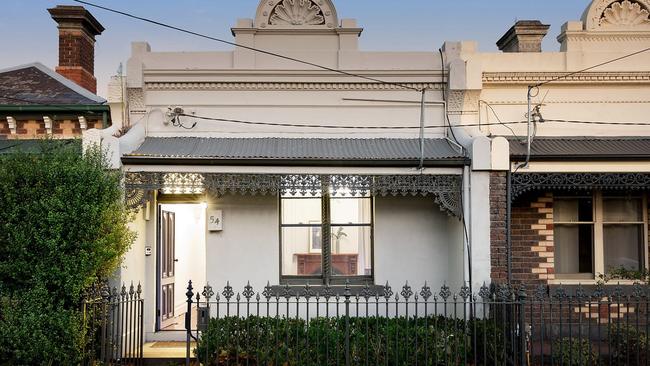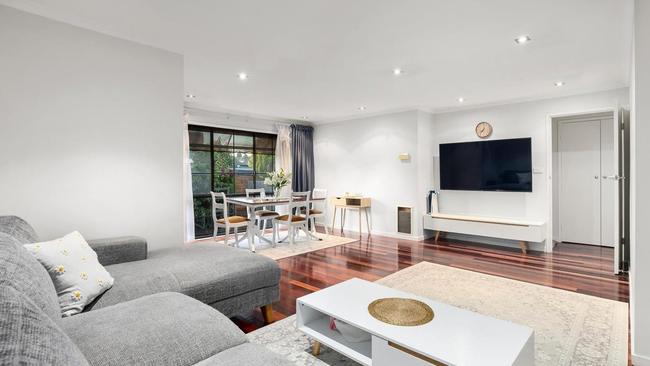Barriers to home buying: Melbourne home seekers need to save $250k+ to cover upfront costs | MCG Quantity
An analysis of median home value figures by tax experts has revealed the typical fees that homebuyers are facing to break into the market in each suburb today — Search your area.

Property
Don't miss out on the headlines from Property. Followed categories will be added to My News.
Melbourne homebuyers are paying as much as $250,000 in upfront costs to purchase a property under $1m, exclusive analysis reveals.
Some property experts believe these initial costs are “without a doubt” a barrier for home seekers trying to enter the market.
The analysis of PropTrack median home value figures by tax experts MCG Quantity Surveyors shows the typical fees that homebuyers are facing upon settlement to break into the property market in each suburb today — Search your area below
RELATED: Vic Government hints at big housing tax change
First-home buyers’ bold $1 move pays off
Analysis showed that purchasers are paying $43,000 in stamp duty after already having to save for a deposit between $80,000 and $160,000 (10 per cent or 20 per cent) for an average residence in Greater Melbourne — where the median home price is $797,000.
MCG Quantity Surveyors director Mike Mortlock said home seekers in most of the country now required “massive” amounts of savings to crack the housing market, but few could get the necessary funds together.
“Saving for a home has always been difficult, but what’s different now is that it is so much harder for people to save because of the cost of living crisis and the rental crisis,” Mr Mortlock said.
“It becomes really difficult in a rental crisis to save when so much of your income is going into housing costs.”

Real Estate Institute of Victoria president Jacob Caine said “without a question” the upfront costs buyers faced when purchasing a home were a barrier to entering the market.
“The data that we have suggests somewhere between 90,000 to 100,000 families, couples and individuals don’t move in any given year because of stamp duty, because it’s an impediment,” Mr Caine said.
“It represents about six months of pre-tax income for an Australian earning the median wage, and it adds on average around one year of additional saving time for a first-time buyer looking to save enough to purchase their first home.”


He added that the REIV has suggested to replace stamp duty by increasing the GST from 10 per cent to 10.45 per cent.
“(This) would allow for states to eliminate stamp duty, land tax and payroll tax which would generate enormous economic activity,” he said.
Mr Caine said the Australian Prudential Regulation Authority (APRA) also needed to be less risk averse by lowering the margin rate that loans were assessed on to give borrowers more buying power.
“Their assessment rate is stopping a lot of people from getting into properties that they can actually afford,” he said.
Similarly, PropTrack senior economist Paul Ryan said the requirement to have a 20 per cent deposit without incurring lender’s mortgage insurance (LMI) fees needed to be looked at.
“I think it’s way too large; it’s much bigger than serving the intended purpose, which is just to show that potential borrowers have some discipline,” he said.
He added that there was a growing prevalence of family lending as it was so difficult for first home buyers to save enough to cover their costs.


Australian Property Home Loans director Adele Andrews said stamp duty could be somewhat prohibitive when trying to get into the market, and perhaps the $600,000 threshold where it didn’t need to be paid should be raised.
But in terms of LMI, she said it was important for first-home buyers to realise that it was just a “small fee” that allowed them to get into the market sooner.
“Lender’s mortgage insurance does not need to be a reason not to buy,” she said.
“If you did the cost benefit analysis in terms of how much equity you’re missing out on by avoiding LMI, the scale would probably tip towards the LMI’s way.”
Ms Andrews said it was important for buyers to do their due diligence and align themselves with a professional so they didn’t short-change themselves when it came to their settlement day.
Buyer’s advocate Amy Lunardi said stamp duty was a hindrance to a significant number of people and reduced the turnover of properties because of its big cost.
“If it was lifted, you would see much more fluidity in the market but it would be a very challenging thing to change,” she said.
However, she said buyers needed to think of their deposit as a contribution to their property rather than a cost.
Sign up to the Herald Sun Weekly Real Estate Update. Click here to get the latest Victorian property market news delivered direct to your inbox.
MORE: Ex-Neighbours star, model sells unique island ‘shed house’
110yo arts and crafts home turned into architectural marvel
‘Rent disaster’: Vic suburbs where landlords are fleeing
sarah.petty@news.com.au


